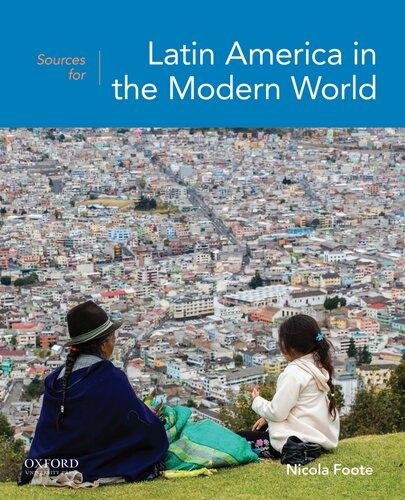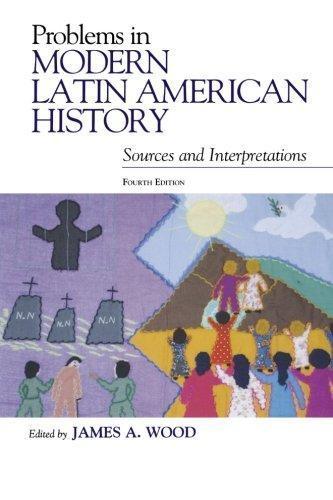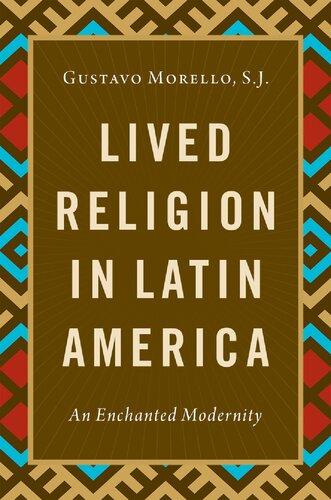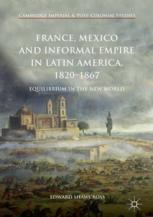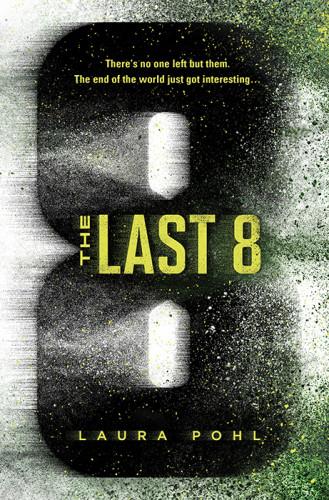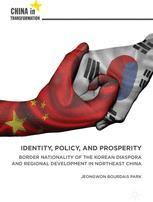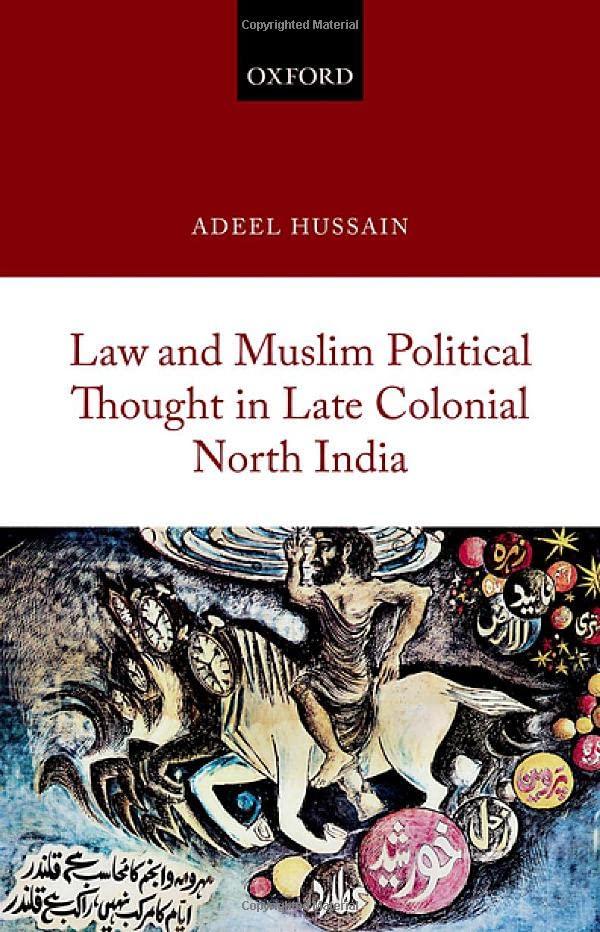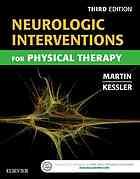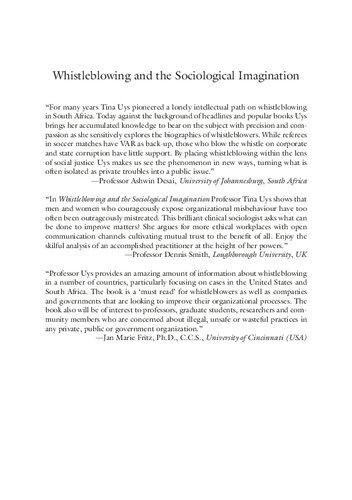Other documents randomly have different content
“Now, you want I should tell you about the Jew,” said the rabbi, stroking his beard. “But take a seat first. The trouble is you come here for an hour or two hours and expect to learn everything about the Jews, like you learn a recipe for a sponge cake. You must study and read.”
Robert glanced at McCall. The latter had evidently prepared Rabbi Levin and Father Callahan, had probably phoned them before coming to his room. It was a conspiracy, he could see, for his own good.
“Nu, what do you want to know? There is no mysticism in Judaism. It is an open book. There it is, everything.” He pointed to a Bible.
“But he wants to know something about the Jews that will offset this Trick Track Tribe propaganda.”
“What, Trick Track Tribe?” The old man shrugged his shoulders. “Craziness. Foolishness. It can’t last. Mr. Hamilton, can a bad thing, an untrue thing, last? No? Well, then, how can the Tribe live? What do they say? Ask me any questions and I will try to answer them for you as best I can.”
“Mr. Levin,” said McCall, “the Tribe accuses the Jews of planning to overthrow all the Gentile governments of the world through the Third Internationale. Isn’t that the argument, Hamilton?” Robert nodded.
“Nu, they do us credit. They flatter us,” said the rabbi. “How can it be that the Jews, who are only about three per cent of the population, should control the whole world? Is it sense?” He shrugged his shoulders and cocked his head to one side. “Jews? What Jews? You talk as if Jews was a little society, like a lodge. There are American Jews and Russian Jews, German Jews and French Jews, Republican Jews and Democratic Jews, radical Jews and conservative Jews. It’s not like they have a pope to tell them what they shall do.”
“But how do the orthodox Jews feel about internationalism?”
“Ah, the orthodox Jews. They are the Zionists. They are always dreaming that they shall get back to Palestine. So how can they be internationalists? They are nationalists, they want that even the Jews should have their own nation, so how can they be both nationalists and internationalists at the same time?”
“But isn’t Trotsky a Jew and most of the Bolshevik leaders?”
“Trotsky is no longer a Jew. He has been, what you call it in the Catholic Church, excommunicated from the Jewish Synagogue. His parents are Jews, good Jews, and they mourn him like he was a dead one. There can be no religious Jews among the Bolsheviks, but there are some Jews, by birth we admit it who are leaders. Nu, Lenine is a Gentile. So what does that show? But most of the leaders are not Jews. It is true that there are more leaders among them in proportion to their population. But that is because most of the Jews in Russia live in the big cities where the Bolshevik movement started. And the Jews are better educated than the average Russian. So they are naturally more highly represented in the offices. Trotsky is the only great Jewish leader the head of the army. But Lenine comes from the nobility and many of the Russian radicals are from the old nobility. But you can’t say that the Russian nobility is radical, can you? But there are no Jews in the tchaika, which is responsible for the reign of terror. They are all Letts. The Jews are mostly translaters, because they are educated to speak several tongues, teachers, minor officials. But they are simply officials, appointed by the government, and they would hold the same jobs should it be a Kerensky again at the head. It’s just like the communists have placed the old Czarist generals at the head of the different army corps. What should they do? They have to fight for the government or they get killed. But the generals under Czar Nicholas who are now leading the Red armies, are they also Bolsheviks? No, a religious Jew or a Zionist, whether he observes all the religion or not, he cannot be an internationalist.”
“How about the protocols of the Elders of Zion?” asked McCall.
“What’s that?” asked Robert.
“That’s the book that’s supposed to be the basis of the accusation that the Jews have a world-wide plot against all governments.”
“Have you read it?” asked Rabbi Levin.
“No.”
“Then it is hard to speak about it. If you read it you would see right away that it was a forgery. In the first place, Elders of Zion. You see, the people who wrote it, forgot that there is no such a thing as a Jewish central organization, like, say, the Holy See for the Catholics. There is no such thing as the Elders of Zion. It couldn’t be, because there is no such thing as Zion, that is a united Jewish people politically. The Elders of Zion are supposed to be some official body meeting in connection with the first Zionist convention. But the Zionist convention was open, so that all reporters could come there, so how is it no one should know of such a plot? Of course, if the Zionists would have wanted no governments they would not spend their time and money and risk their lives now in settling Palestine for a government of the Jews. But why should I tell you it is a forgery? You know what it is, historical method?”
Robert had not studied it, but he knew what it was from college. Students majoring in history and graduate students took it.
“Well, you know, you can tell by examining documents whether they are true or fakes. It’s wrong here. It’s wrong there. A contradiction. You know how it is. Well, a much better man than I, and a Gentile, has called it a forgery. Who is that? You should know, the head from the greatest detective force in the world, Scotland Yard, Sir Basil Thompson.”
Robert laughed. “Well, that’s proof enough for me.”
At the table there were queer dishes. There was herring for an appetiser, a cold soup, which they called borsht, which was red, tasted of beets and was eaten with cream. Appetizing envelopes of dough filled with cheese and eaten with sour cream, called blinches. Strudel, a sort of crisp tart filled with prunes.
“It’s the most delicious food I’ve eaten since I left Paris,” laughed Robert. Mrs. Levin beamed her pleasure.
Every one was talking at once. Explaining this and that. The significance of the candelabra. Why the rabbi wore a skull cap. Why little mazzuzas, painted wooden things, hung at the doors. Explaining the food. The rabbi, like his son, had a habit of skipping from one subject to another—literature, art, music, sociology, anthropology. Robert had always had an idea that Jewish learning was confined to the Talmud, mysterious books of ancient and medieval lore. But he found the rabbi’s knowledge was quite as modern as the most enlightened cosmopolite might wish.
“Most of these customs are simply customs,” said the Rabbi. “Why do you take off your cap to a lady? Custom. For the same reason I wear a hat. The simpler people make up explanations. See that mazzuza hanging at the door? It contains a little bit of holy scrip. Superstitious people think it drives away the devils. Other people hang it up because they think it makes a pretty curio. Like you might have a Buddhist idol, without believing in it, or a horseshoe. Some customs are nice customs. There is sentiment in back of them. So I stick to ’em. My children, nu, they are Americans. They grow away from it.”
McCall tried to turn the conversation back to the Tribe, while Robert protested that he had been convinced. To appease McCall, the rabbi had showed them the constitution of the Sons of Israel and assured them that the oaths were as innocent as that of the real fourth degree of the Knights of Columbus. The Tribe had accused the Sons of Israel of attempting to carry out the “international revolution.”
“Even if everything the Tribe says about everybody Jews, Catholics, Negroes, foreigners—was absolutely true, still it would be wrong,” said the rabbi. “Why? Because either your Tribe is an invisible government, or it isn’t. If it isn’t, you are getting money under false pretenses, because you claim it is. And if it is an invisible government, they are transferring the government from its proper
offices and should be arrested for the same reason that the communists were arrested when they also tried to set up an invisible government. Invisible government, no matter for what purposes, has no place here.”
At the end of the meal, they returned to the living room, where Estelle, upon the insistence of her parents, played surprisingly well, some selections from Rimsky-Korsakov. The rabbi kept time with his head, shaking it rhythmically from side to side.
“When she plays I can just hear the shepherds blowing on their pipes,” he said.
But McCall insisted on thrashing out the Jewish question still further.
“Well,” said Hamilton at length. “Of course those charges are all false. I don’t think any sane person is afraid that a handful of Jews, especially disorganized as they are, could ever gain control of the world. That’s preposterous. The real objection to him is that he is different, a foreigner, an inferior element. Not that I believe it, but—”
Dr. Levin, who had allowed his father to carry out the bulk of the argument, could keep back no longer, and he took up the challenge.
“I am not going to point out the qualities of the Hebrew race, Hamilton, because, it is not for qualities or lack of qualities that a mob hates. And that’s what your Tribe is. It is the same sort of a mob that forms the secret society of the savage tribes of dark Africa. There they kill a man not because he is better or worse than they are, but because he is alien. Among the savages of the Amazon, it is enough that a man has wandered from his tribe six months for him to be murdered for his alienism.
“You know that your very religion is Jewish, and that the first Christian martyrs, whom you reverence, were all Jews or converts to Judaism. You know that Jews have always contributed more than their proportion of the distinguished men of every nation in which they have lived. But distinction in talent or in wealth only fans the mob’s hate. It was so in Spain during the Inquisition, where the
Jews had married into the proudest Spanish families and occupied the highest positions, and it is so here today. The mob which sneers at the poor man because he is poor, howls for the blood of the rich man because he is rich. And it is among those same bigots that the conflicting cries arise against the Jewish banker and the Jewish peddler.
“It is possible that you yourself carry the taint of Jewish blood in your veins, for wherever the Jews have lived, they have intermarried. They have both converted and been converted. In the greater cities of Europe from 10 to 50 per cent of all Jews intermarry. The one thing that distinguishes the Jew from the other modern races is his retention of the old faith. It is his faith alone that makes him unwelcome.
“You call the Jew an alien, but if he is an alien then every inhabitant of America excepting the red Indian is an alien. The first Jews came to America with Christopher Columbus, and there is even evidence that Columbus himself was a Jew by birth, although a Catholic by religion. Jews fought with the Dutch against the Swedes in New Amsterdam, with Washington in the French and Indian war, and once more with Washington in the war that won freedom for the colonies. A Jew helped Robert Morris finance the Revolution and it was another Jew who financed the Union at the most critical point of the Civil War. A Jew prevented the delivery of two armored ships to the Confederate states which would probably have broken the blockade and won the Civil War for the South. But, of course, you’re a Southerner. In your own state, Georgia, the oldest settlers are descendants of Jews.
“But there is no use reasoning with a Tribesman. He is one of a crowd, and a crowd lacks reason. Get your crowd swayed by the spirit and it matters not what reason you give it for its hatred— difference of race, of belief, of appearance. Tell the crowd that being black is wrong, or being a Catholic, or being a Jew. It is but enough to point out that the objects of its wrath are different from it. Show it an ideal like Anglo-Saxonism. It will not stop to reflect that the
greatest Anglo-Saxon nation in the world, Great Britain, is a mixture of primitive Briton, Celt, Teuton, Norman, Jew, of Catholic and Protestant. In the name of Anglo-Saxonism it will strike blindly against the elements of its own population, whose very diversity made the greatest Anglo-Saxon nation what it is.
“During the World War it was necessary to organize this nation into a huge crowd, instilled with the single idea of patriotism. Then it was a matter of self-defense, and in the same way you can organize other crowds and inspire them to the highest deeds. The old Ku Klux Klan was undoubtedly actuated by the highest of ideals. But it broke away from its leaders and became a mob. It became an evil graver to the law and order of the nation which it started to protect than the forces which it combatted. That is exactly what will happen to the Trick Track Tribe. That is exactly what is happening to it today. Men and women are being boycotted, banished from their homes, tarred and feathered, flogged and murdered. Officially it may not be the work of the Trick Track Tribe. Officials may disclaim responsibility. But they cannot disclaim responsibility for forming the mob and then directly or indirectly inciting it. Griffith may be the wisest of men, Lister the noblest and most sincere, but they can no more control the mob of their formation, than could the wise and sincere men who formed the Ku Klux Klan stop its reign of terrorism. That took a greater crowd, actuated by a greater ideal.
“The Trick Track Tribe has already shown a record of atrocities wherever it has formed a considerable element of the population. If its leaders have directed them, the Tribe already stands convicted. If its leaders have not directed them, the Tribe already confesses that the mob has broken out of its control. But just as the federal government, backed by aroused public opinion, was able to overthrow the old Klan, so will the government, once more representing aroused public opinion, overthrow the present Tribe.”
“You’re right,” cried Robert. “You are absolutely right. Perhaps you didn’t know it. I’m a member of the Tribe myself—but I won’t be anymore.”
No one showed surprise.
“We knew it all the time,” said Rabbi Levin. “Only we don’t believe in using the same tactics as the Tribe. We wanted to convince you.”
“You, you—” Robert was bewildered. It seemed incomprehensible.
“Sure,” said the rabbi. “See, isn’t it better we should sit down at the table and eat borshtand blinchesand talk it over like men with sense, instead of we should kidnap you with white masks like hoodlums and try to convince you with a bath of tar and feathers, which never convinces anyway? Wouldn’t it be better, if the Tribe really had something against the Catholics or the Jews, they should bring it out—nice, quiet, like gentlemen—in the open? If they told the Catholic priests and the Jewish rabbis anything they know bad about them, wouldn’t the Catholics and the Jews themselves be the first ones to stop it? Or couldn’t they bring it up in a court if they were traitors to their country, and get the services from the department of justice and maybe deport them like it was the anarchists?”
“Yes, Mr. Levin, that’s the American way to settle things, in the open!”
“And it’s also the Jewish way,” said Levin.
“And the Catholic.”
“And it’s the Protestant,” said Hamilton. “If it wasn’t for my oath I’d bring the whole thing out in the open!”
“What oath?” asked Dr. Levin.
“My oath to the Tribe.”
“Don’t you remember that other oath we all took—McCall, a Catholic; you, a Protestant, and I, a Jew?”
“What oath?”
“The oath to protect our country—the oath we all took when we got our commissions in the army. Are you, in letting this un-
American Tribe hatred spread, living up to that?”
“God, no!”
Robert rose.
“I’m going to hand in my resignation now!”
“It’s eight o’clock now. Wait until morning,” urged Levin.
“No, I won’t wait another minute.”
But the office of the Dearborn Statistical Bureau, where Freeman sometimes worked at night, was locked and Robert, after sending a telegram to Griffith, went to his room.
XXXVI
The rioting begun on Sunday fanned into a race struggle all the smoldering passions and hatreds that the Armistice had once suppressed. White men of fifty different creeds, nationalities and politics, who had begun by hating the unreasoning hatred of the Hun for the un-Teutonic, and who had grown intolerant of the arrogant intolerance of the blond beast, suddenly flared into fury against the blacks.
Blacks had disappeared from the streets except in their own belt, around which howled and stormed the white mob. This was no case of punishing the blacks who precipitated the first attack on the beach, but of punishing allblacks. The cry was not “Get the nigger!” but “Get the niggers!” Difference of color, blackness, was the sole object of the crowd’s fury.
On their side, the blacks fought against whiteness. They had begun by stoning, not the white man who had thrown the first stone, but all the whites upon whom they could lay their black hands. In gangs they had waylaid and assaulted any one they met, regardless of age and of sex, because he was white. The black child who had been so cruelly murdered had become a symbol to them of all the suffering of the colored at the hands of the white. All that they had undergone under the lash and the knife in the Congo—the fruitful colony of gallant Belgium—all that they had borne in slave marts, on cotton plantations, in dismal swamps, at the whippingpost, on the faggot pile—all the concentrated injustice of the ages, all the intolerance of bleeding centuries, lay in the sacrifice of this beloved pickaninny. Out of injustice and tolerance had sprung an answering injustice and intolerance. And now in answer to it the white mob screamed without.
Gangs of whites and blacks filled the streets, attacked with rocks, bricks, knives and bullets. Snipers picked off their foe from the top windows of brick tenements. Motor trucks, manned by armed bands, plunged through the crowded streets, showering bullets. Firebrands burned a hundred buildings and attempted to destroy the entire Negro district. Three thousand men, women and children were rendered homeless. By Monday night twenty-five blacks and whites had sobbed out their lives in the battle of color, their bodies lay on the marble slabs of the public morgue—a sacrifice to the God of Intolerance.
In Tuesday’s paper Robert read about the rioting and heard unconfirmed details, horrible exaggerations, from the lips of excited men who stood around the lobby. Robert felt glad that he no longer belonged to the Tribe. Though the riots were no part of the Tribe’s work, still they showed Robert the danger of organizing on the basis of hatred. In a way he had known this all the time, but now his talks with Father Callahan, with McCall and the Levins had indelibly impressed it upon him. He felt himself nearer to his mental state of mind immediately after the termination of the War—when the American ideal of forbearance, indulgence, charity, had electrified a world—than he had ever been since. Democracy. Yes, democracy, that was it.
Robert decided to wait until he received a reply to his telegram of resignation before notifying Freeman, grew impatient as the morning wore on and finally determined to rid himself of his impatience by walking. It was hot and choking and sooty not at all the Chicago of which he had dreamed when he was in Georgia. It was impossible to get used to Chicago. It was hot, but not like Corinth. It was hard to breathe. On Michigan avenue, however, in spite of the smoke from the lines of trains that ran along the shore, one could at least see Lake Michigan, stretching calmly out to the horizon in the golden sunlight, bearing proud white steamers and occasional sails—and the only restful thing, it seemed, in the whole feverish metropolis. And so he walked, past the Art Institute, to the north where workingmen
high above were placing blocks of dazzling white terra cotta on a tall tower that rose just beyond the bridge at a curve in the boulevard.
He wondered how it would feel to stand perched there high above the city—with its swarming traffic, its noise and soot, its passions and hatreds—God peering down on the world he had fashioned. He looked at his watch—it was almost eleven—and decided to return to his hotel.
McCall was waiting for him.
“I noticed a couple of telegrams in your box,” he said.
“A couple?” Robert wondered why there should be two. He opened the first. It was from Griffith, a mixture of threat and Tribal mystery. He could imagine Griffith grinning while he wrote it, wracking his brain to coin something staggering, and satisfied with his work. It read:
“We know what we are doing. Remember your oath. Death to the faithless is necessary to preserve faith in the deathless.”
The second telegram was briefer:
“Have learned all. Am returning ring. Margaret.”
Margaret! She, too, had turned against him. He remembered her outburst of anger at home, when he had discussed resigning from the Tribe. But how had she learned of his resignation? Who—? Ah! Robert had an intuition. Pinkney. Pinkney, of course. Pinkney, who had wanted Margaret all the time. Pinkney, who had induced him to join the Tribe and undertake the organization of the middle West. He could see it all. Pinkney, with his fresh, pink cheeks, bursting into the Forsythe home, with the announcement that Hamilton had turned traitor to the South, to one hundred per cent Americanism, to the Constitution, to the sanctity of the home, to the dozen other glittering formulae that masked the crude program of racial and religious persecution. Robert felt anger, anger against Margaret, but principally against Pinkney—and relief.
He handed the telegrams to McCall, one by one.
“You may use the first one,” he said.
“I wouldn’t let that worry you. They’ll probably send you a few notes of warning, with pictures of skulls and cross bones. There’s a story in The Times this morning about—” His eyes took in the second telegram.
“Why—why, old man, this istough. Have you quarreled?”
Robert told him of Margaret’s fanatic enthusiasm for the Tribe, especially its mission of protecting the home. As he did so, he felt the blow to his pride. He was glad of it yet to be jilted!
“Protecting the home, eh!” exploded McCall. “Why more than half the men drafted from the South had the clap. Oh, I beg your pardon, Ham. I forgot for a moment. Oh, well, we’re almost as bad here. Probably worse in Chicago. But at least we don’t go round posing as home protectors.”
“Oh, well,” said Robert, with a little shrug of the shoulders, “I don’t know. I don’t feel crushed, but it—”
His thoughts somehow jumped to Dorothy and his heart beat faster.
“Crushed!” McCall slapped him on the back. “That’s the luckiest thing in the world for you. Why, you’re still young. You know, you’ll be a long time married. I thought that I was the only sensible person left.”
“What do you mean—only sensible person?”
“You know what I told you about Levin and Miss Meadows.”
“Levin. Dorothy!”
“Sure, at the Press Club, that first day. No, by George, I was called away before I had a chance. You know they met in France. It’s one of those war romances. He a doctor and she a nurse in the same hospital. Of course, it’s not a regular engagement. His father is orthodox and—”
McCall’s voice went on. Robert heard it in snatches. He remembered Dorothy speaking about religious tolerance, about intermarriage. No, that would make no difference with her. And Levin, too. His mouth felt dry. He was talking at random? “Yes— Splendid girl—Beautiful—Nice chap—”
They drifted down to Washington street and into a little restaurant. Robert noticed the name—Ye Pot and Kettle—painted under a picture of a large, old-fashioned pot, on the window.
“Thought it would be a little quieter here,” McCall was saying.
“Yes.” He looked at the menu. A waitress was proclaiming the merits of the day’s specialties. He ordered something. He was conscious of a buzz of voices and the sound of plates and cutlery.
“What’s the matter? You look pale.” McCall leaned forward, his face anxious. “Aren’t you hungry? Better take some coffee. It’ll do you good.”
“No, I’m not very hungry,” he said, but sipped the coffee. “I’m going to the office.”
“It’s only twelve-thirty.”
“I’ll walk around a while.”
They walked slowly around the grim, gray city hall.
Robert shook off his weariness. Outside the entrance to the office building they paused. McCall lit a cigarette.
“I’ve got to interview some one at the Palmer House,” he said, throwing away the match. “Want a pill? Meet me there as soon as you’re through. There’s some sort of a conference going on.”
“All right. In the lobby.”
The outer office of the Dearborn Statistical Bureau was empty— the office force was still at lunch—but Freeman, in his shirt sleeves, was bending over his desk in his private sanctum. Robert entered.
“I’ve resigned—” he began.
Freeman stood up, a sneer on his face.
“Yes, I got a telegram, telling me you’d quit. Well, there was another fellow who also quit.” He shoved over the morning paper. One of the stories on the second page was marked. It told of a former Grand Bogey of the Tribe who had committed suicide after receiving threatening letters. As Robert read, he could hear Freeman breathing and felt that he was pulling himself together. He looked up.
“Well—”
“You damned coward, quitting now because you’re afraid of a few coons!”
“What!” Robert bit his lips and felt the muscles of his arms and legs suddenly tighten.
“You heard me! You didn’t resign before. You waited until this nigger trouble began and then you quit. I said you were a damned coward!”
Robert took a step forward. Freeman’s huge fists were clenched. He knew that he was white and trembling.
“You take that back!”
Freeman took a single step to one side, so that the desk no longer stood between them. His lips were frozen in a sneer. The corners of his eye-lids were drawn down. He looked straight, unflinchingly into Robert’s eyes.
Robert felt the blood pounding in his temples and rushing from his heart through his limbs, and with a sudden movement, that was almost a leap, he drove his right fist with all his strength at Freeman’s chin. The latter skilfully threw his left forearm across his face and slightly ducked, slightly tilted his head to one side. Robert’s fist struck his opponent’s forearm and the top of his skull, and a sharp pain shivered through his wrist.
“Ah.” Freeman’s teeth were bared. He was terribly cool. He collected himself and sprang forward. Robert was thinking of his chest. The blow caught him high on the side of the head and sent him backward into the door, which crashed shut. Robert covered. His right hand was useless. His chest! His face and solar plexus had to be protected. It was impossible to protect all of them and still fight. He decided to wait, head down, forearms forming a shield. He saw an opening and jabbed suddenly with his left. Freeman’s head snapped back and a stream of blood issued from the corner of his mouth. Robert fiercely lashed out again at the same spot and Freeman fell blindly into a clinch. His weight was forcing Robert slowly backward toward the door. He tried to free himself. Freeman held on desperately and tried to backheel him.
Slowly something that he had learned came into Robert’s mind. Something his wrestling instructor had told him at Harvard. “If you ever get into a free-for-all—” What was it? His head was whirling. He was being pressed back. If he could only use his right arm. Freeman suddenly backed off and in that instant Robert remembered. He drove the heel of his left hand full at Freeman’s chin, the fingers spread out across his face. Freeman straightened up and threw up his hands. Like a flash Robert had fallen on one knee, tackled his adversary about the ankles, thrown him over his shoulder like a sack of wheat, staggered about in a circle for a few steps and—dropped him. Freeman struck the floor on the back of his head with a crash and lay stunned for a second. Robert staggered back against the wall. Freeman had backheeled him. It was fair. His right hand was helpless. He saw Freeman rise slowly, shake his head and lunge heavily forward. Robert grinned. He ducked under the outstretched arm and struck straight out at the pit of his stomach with his left. Freeman collapsed and lay in a heap, his collar loosened, his tie twisted around his neck, his hair and face dripping with perspiration, the corner of his mouth swollen and streaked with red.
A voice outside in the hall: “What’s going on there!” Footsteps in the office. “Anybody there?” Silence. The footsteps retreating.
Freeman raised his head. Robert bent down and pushed it back and sat astride his chest.
“Am I a coward?”
“Let up, you damned—”
Robert shoved his head back with his open hand.
“Am I a coward?”
Freeman gurgled. His face was red. Robert withdrew his hand.
“Am I—” His hand clutched forward.
“No.”
“Am I a coward to quit a bunch of men who fight in the dark? Am I a coward when I know that I’ll be threatened with death for resigning?”
“No. Let me up.”
Freeman’s face was red. He was panting.
“Shake hands first and say we’re friends!”
“What?”
“Shake hands and say we’re friends!”
Freeman looked startled, as though he were talking to a mad man, but held up his hand.
“Now before I let you up.” He shifted his position forward a trifle and Freeman winced. “Before I let you up, listen to this: I quit because I learned that the Tribe’s stuff about the Jews and the Catholics is all bunk. I was a damn fool. But when I was shown, I did the square thing. I quit. Now you’re going to do exactly what I tell you. You’re going to see the same persons I saw. And if they convince you, you’re going to quit, too. Is that agreed?”
“Yes. Let me up for God’s sake. I’m choking.”
“First shake on it.”
They shook. Robert sprang to his feet and helped Freeman to his.
“I haven’t a damned thing against you, Freeman. In fact, I always liked you. There’s nothing personal about this, excepting you called me something that we don’t call friends where I come from.”
Together they brushed off Freeman’s trousers.
“The stenographer is back,” said Robert. “I’ll send her for collars and court plaster. Never mind, I’ll pay.”
Fifteen minutes later, washed, combed, in clean collars and with Freeman’s cut lip neatly concealed by plaster, they set out to find McCall.
XXXVII
McCall was walking impatiently back and forth in front of the hotel, smoking a cigarette, when Robert and Freeman arrived.
“I’ve been waiting for you,” he said. “Oh, we’ve met before. Trick Track Tribe. I mean Dearborn Publicity Bureau.”
Freeman grinned sheepishly.
“Yes, we’ve met.”
Robert’s attention was diverted by the appearance of a taxi, driving up to the curb. The door opened and a black man stepped out. A black man!
“There’s Williams!” cried Robert.
“Who?”
“Williams. You know, Mac, the hospital—France.”
It was Williams and suddenly, somehow, Robert found himself shaking his hand—the first time in his life that he had ever grasped the hand of any colored man, except George, the chauffeur, and Sam, the gardener.
“You’ve changed.” The colored man was smiling.
“Yes, I’ve got a new view of things. I I’ve read your articles in TheTorchand I want to tell you that I agree with your stand against the Trick Track Tribe. It must be fought through education, not by stirring up a new and stronger prejudice against it, even if we are stronger.”
Williams was pleased. He paid off the driver and explained that he was attending a meeting of state officials, of representative white
and black citizens to discuss the race riots.
The taxi pulled away. And suddenly Williams, Ph.D., Harvard, wearer of the Croix de Guerre and editor of The Torch, stood revealed to the white world. The hated color had suddenly reappeared.
“Yeh, look at the nigger! Skunk! Skunk!” the shrill voice of an office boy, a pink-cheeked lad of perhaps thirteen, cried out, as he darted across the crowded street. A stone struck the black man on the arm. Robert saw what was coming. The world which had drifted by a moment before had suddenly become electrified. “Nigger! Get the coon! Get the damn murderer! Nigger! Nigger!” A hundred angry voices, cursing.
A broker’s clerk came yelling. A bank teller followed. Two law students. Salesmen. Shop managers. Men. Boys. Women. Men in work shirts. Men in jazz ties. Men in silk shirts. Black! Black! Black! Black raged through their hearts. They screamed and whooped and ran forward with faces distorted and arms raised.
“Quick, the door!”
Robert started toward the entrance. A white man barred the way. Robert pulled him to one side. The man raised his arm, but Freeman and McCall had sprung forward and were holding him helpless. The black man leaped through the doorway and to safety. McCall and Freeman ran after him, for to aid a Negro then was a crime in the eyes of the mob which hated blackness.
Robert started to follow. Something struck him on the forehead. The cries of the mob and the sound of their footsteps, a man’s laughter, the traffic clangs and noises, the far-off whistle of a patrolman, whirled about him. The world turned red and went spinning round and round—then black, in circles, closing, closing. A confused roar, fainter and ever fainter in his ears. A sensation of being carried, of floating, finally of resting.
Somewhere Robert presently was aware of a light, a flame that was at the same time himself. The flame grew outward and
shattered into other flames. The light expanded, throbbing. He was running forward through a grotesquely flaring night, with lights and rockets that screamed overhead and exaggerated every irregularity of the ground, that sent ghastly shadows staggering across the field.
No. He was running down a football field with a leather ball tucked under his arm, a smell of earth and blood and leather in his nostrils and the roar of voices in his ears. No. He tried to remember and found that he was conscious. His eyes fluttered open. Eyes strangely familiar were resting on them.
“Where am I? What’s happened?”
Soft hands were patting him. He felt the pressure of a bandage around his head and a dull pain. He saw a doctor and a woman bending over him. He knew that he was in a hospital. He heard a familiar voice, the woman’s voice, consoling him.
“Robert, Robert, you’re all right now?”
There was a hum of voices. There were tears in her brown eyes. Oh, Dorothy! His heart was racing. Dorothy. No. Yes, it wasDorothy. Dorothy of the hospital. Dorothy who had wept once before, in Paris. Dorothy who had kissed him then. Yes. His head was clear. He raised himself to a sitting position.
She was holding his hand. His own eyes were wet.
“Why? Why?—”
“Robert, Robert.” She was bending over him. Her hair was brushing against his face. He felt a glow of warmth. Then her lips against his. Her eyes were closed. He closed his own.
“Dorothy.” His head was clear. He remembered everything. “But why are you here?”
“I heard you had been hurt. I thought I thought it was serious. But it isn’t. I’m so glad,” she sobbed.
“But why did you come?”
“Because—because—” She looked full into his eyes and he could see little sparks of light dancing in them. “I love you, Robert.”
His heart gave a bound.
“But—” He remembered. Oh, yes, McCall. “But I thought that Jack Levin—”
“No.” She shook her head. “We are of different faiths. We—”
“But you told me—your ideas—”
“No, we decided it was better not—”
“Because—”
“Because we are of different faiths—and because—” Was she laughing or sobbing?—“because I loved you—yes, it was you—all the time.”
“Dorothy! and—”
“Yes, I knew it from the beginning.”
THE
END
Transcriber’s Note:
Words may have multiple spelling variations or inconsistent hyphenation in the text. These were left unchanged. Jargon, dialect, obsolete and alternative spellings were not changed. Eleven misspelled words were corrected. Misplaced or missing punctuation was corrected.
Added missing “to” ... time to show that ...
***
END OF
THE PROJECT GUTENBERG EBOOK TAR AND FEATHERS
Updated editions will replace the previous one—the old editions will be renamed.
Creating the works from print editions not protected by U.S. copyright law means that no one owns a United States copyright in these works, so the Foundation (and you!) can copy and distribute it in the United States without permission and without paying copyright royalties. Special rules, set forth in the General Terms of Use part of this license, apply to copying and distributing Project Gutenberg™ electronic works to protect the PROJECT GUTENBERG™ concept and trademark. Project Gutenberg is a registered trademark, and may not be used if you charge for an eBook, except by following the terms of the trademark license, including paying royalties for use of the Project Gutenberg trademark. If you do not charge anything for copies of this eBook, complying with the trademark license is very easy. You may use this eBook for nearly any purpose such as creation of derivative works, reports, performances and research. Project Gutenberg eBooks may be modified and printed and given away you may do practically ANYTHING in the United States with eBooks not protected by U.S. copyright law. Redistribution is subject to the trademark license, especially commercial redistribution.
START: FULL LICENSE

